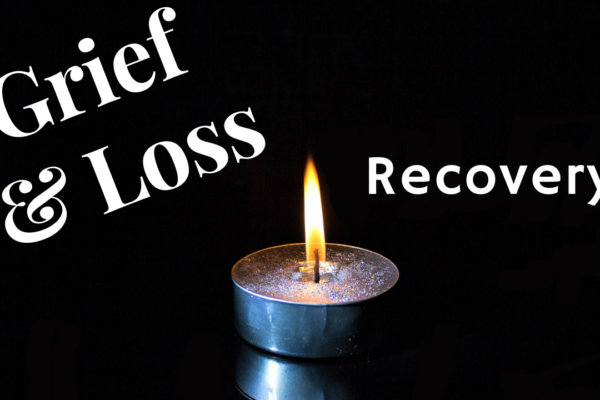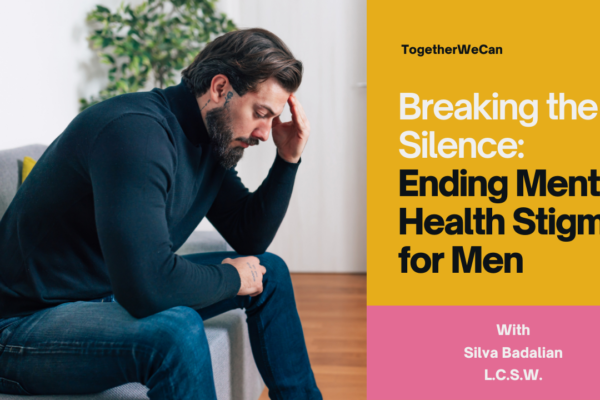Table of Contents
How To Cope With Depression in 12 Proven Steps: Step 6
How To Cope With Depression Through Healthy Activities
This post discusses the second set of skills for learning to cope with depression through healthy activities. In the previous post, we discussed the importance of resuming old activities, because they are easier to engage in after being stuck and isolated in a depressive state of mind. Now that you have hopefully gained some traction, it is time to up your game, and plan ahead for diversifying your approach.
In this post I will cover:
- How to plan for starting new activities in the face of depression
- How to cope with depression through healthy activities
- The importance of gathering ideas for activities beforehand
- The importance of committing to a new activity
Before reading on, be sure to review the skills discussed in my previous post, How To Cope With Depression in 12 Proven Steps: Step 5.
Chaining Your Behavior
Remember how we discussed the chaining exercise in previous posts for identifying the relationship between our thoughts and our moods? Well, the same skill applies to our behaviors and our moods.
Our mood follows a series of events that are dictated by the choices we make in response to an initial neutral event. It is our interpretations of the event that influence our reactions. We will get deeper into assumptions in a future post. For now, let’s focus on how we can cope with depression through healthy activities. I want you to consider the list below, and take note that #5 is reserved for a triggering event, #9 is reserved for the best mood, and #1 for the worst.
The goal is to consider a recent triggering event (or make one up), and then think about how you would generally cope in response to it. What kind of activity would you engage in? If it is one that would help your mood, your would start an upward trend at #6, and if it would harm your mood, then you would start down at #4.
As you fill in the chain, you will likely gain insight into two things; What coping activities are useful and which ones are harmful or unhelpful. This provides you with vital feedback that you will then be able to incorporate into your coping toolbox. You can also learn which harmful behaviors to target for change.
9. BEST MOOD
related activity
8.
related activity
7.
related activity
6.
related activity
5. NEUTRAL
EVENT/FACTUAL STATEMENT
4.
related activity
3.
related activity
2.
related activity
1. WORST MOOD
related activity
I find the really beautiful thing about this exercise is that it highlights the fact that you have a choice in your actions, even in the worst of circumstances. This is an important lesson because depression often leads to black and white thinking, or all-or-nothing thinking patterns.
You may not always have the energy to engage in an activity when you are depressed, but you will find that when you do engage in the right activities, you will:
- Experience a lift in your mood
- Have healthier thoughts
- Have positive interactions with others and will feel more social
Getting Unstuck
A major problem with depression is that it robs you of motivation. This creates a seemingly tricky problem, because the less engaged we are, the more we self-loathe, which keeps us stuck in patterns of negative self-talk, when what we really need is to be in a mode of action.
So, in order to get unstuck, we have to acknowledge the outcomes of inaction, and our feelings about it. We do this by:
- Naming the consequence of inaction.
- Naming our feeling(s) around the anticipated consequence.
- Naming our possible feeling(s) following a given action/activity.
To increase the odds that you chose to engage in a positive activity, use the “as if” trick.
Even when depressed or anxious, you can imagine what it could feel like to do an activity. It is the principle of the half-smile. Even if you do not feel like smiling, forcing a half-smile will illicit an urge toward a full smile, and more positive emotions; this is bio-feedback, and we can disrupt our depressive feedback loop.
The same applies to activity. It is inertia kicking in.
Goal Pacing Your Activities
The whole purpose of the chaining activity above, is that it highlights the importance of scaling our behavior, or taking baby steps. Once you begin a small task, it becomes increasingly easier to take take the next natural, associated step. For example, if you want to resume walking after isolating for days on end, it is much easier to commit to putting your walking/running shoes next to the door than it is to commit to a 5K. Likewise, once you start a walk around the block, you are more likely to feel motivated to go another block before heading home.
Coming Up With Ideas for Activities
Consider this:
- Prior to your onset of depression, what were your aspirations, goals, hobbies and interests?
- What have you been procrastinating about?
- What do your peers, family, friends enjoy?
- What kind of activities do your role models engage in?
Next, consider the four categories for planning activities:
- Things you can do alone
- Things you can do for free
- Things you can do with others
- Things you can do that are fast and easy
Focusing on activities that you can do alone is helpful, because it affords you more control over the logistics of the activity, such as: when, where, what and how long. It is also good to have time alone to process your thoughts and goals.
Focusing on activities that you can do with others is helpful, because positive interactions with others often lifts our mood. We are more motivated to our tasks when others are involved. Spending time with others improves our relationships.
Focusing on activities that you can do for free is helpful, because you can do as many as time will allow, without stressing on your budget, which automatically lowers the stress factor. Furthermore, they allow for greater flexibility in your schedule.
Focusing on activities that you can do quickly are helpful, because you can do a great deal more of them, can fit them in between pre-existing obligations, and they can widen your perspective of the world around you.
Helpful activities fall into four general areas:
- Self-care
- Fun/pleasurable/amusement
- Learning/Skill-Building
- Meaningful/Value-based
Self-Care activities are the ones that speak to your personal needs and the things that sustain your quality of life. These may include things like sleep hygiene, grooming, meditation/quiet time, exercise, employment, housework/domestic duties.
Fun/pleasurable activities are the things that we often put last, on the back burner, because they seem less urgent or unwarranted. However, these must not be neglected as we need need to decompress; otherwise, we run the risk of experiencing burnout, which can lead right back to depression. These activities can be passive (watching TV, listening to music), or active (going out with friends, journaling, listening to podcasts, exercising).
Learning/skill-building activities are crucial as they are the things we gain esteem and a sense of competence from. They are also directly linked to our development of new synapse and neuro-pathways that trigger out sense of joy. The are stimulating activities that may include things like: learning a new computer program, starting a new exercise program, reading new material or practicing new skills learned in therapy.
Meaningful/value-based activities are those that speak to our passions, moral compass and convictions. These are often in line with the roles we occupy in life at any given stage. These could be roles such as, spouse/partner, mother/father, expert, helper or spiritual. Activities around these roles may look like dinner dates, doing homework with your kids, attending your child’s sports game/taking your kid to the park, going to church, volunteering at the homeless shelter, being an advocate. They can also encompass activities intrinsically linked to our roles, such as the act of just going to work and providing for our families.
Recap
- Depression can result in a lack of motivation (anhedonia), which creates a barrier in engaging in healthy activities critical to recovery.
- You can cope with depression through healthy activities.
- You can disrupt this feedback loop of depression by breaking activities into categories (alone, with others, free, and quick/easy), that you can plan ahead.
- You can scale these activities with chaining
- You can focus on prioritizing the four areas of healthy activities (self-care, enjoyment, stimulation, and meaningful/values).
Practice
- Use the mood scale for tracking your mood and identifying correlations to your behavior and triggers.
- Start chaining your activities/behavior in response to events to learn what is most effective for you in bringing your mood up in a gradual, actionable fashion.
- Commit to a new activity in one of the four categories discussed.
NOTE: Do not wait until you feel motivated to do an activity to start. The motivation follows action, not the other way around.
Looking Ahead
- Learn to recognize and anticipate obstacles to healthy activities.
- Learn how to problem solve these obstacles.
- Plan for maintaining balance among your activities.
Feedback
- What did you find helpful from this post?
- What skills have you learned in this series of posts that find most effective in improving your mood?
- What suggestions would you have for others battling depression when it comes to planning activities?
The Mental Health Toolbox: Resources and Support for Therapists Seeking Growth & Impact.
Mission Statement: To equip therapists with the tools, knowledge, and strategies they need to enhance their practice, boost their income, and ultimately, improve the lives of their clients. We achieve this through accessible, high-quality content, practical resources, and a supportive community.
ASK: If you have a question you’d like me to answer here on the blog (even if you think it’s a silly one!), please use the form on the CONTACT ME page, or the comment section below. I would be happy to take a poke at it and provide a long form answer when appropriate.
SHARE: Also, be sure to share it with a friend, as there is still a lot of work to be done in raising mental health awareness.
SUBSCRIBE to get your FREE MOOD TRACKING TOOL and quick Mental Health Hacks in addition to this newsletter. Sign-up with the form below.
Recommended Reading
Heads up: This article/page does contain affiliate links to products sold on Amazon, which I recommend in the context of this discussion, because they have proved to be helpful to me and/or my clients. As an Amazon Associate I earn from qualifying purchases by way of commission at no additional cost to you.

NEED CRISIS HELP? If you need immediate crisis help with your depression, you can call the National Suicide Prevention Lifeline at 1-800-273-8255 or text “START” to 741-741
OUTSIDE THE UNITED STATES: See International Suicide Hotlines
WHERE TO FIND MENTAL HEALTH HELP:
-NAMI Referral Helpline: 1-800-950-6264
-California’s Statewide Mental Health Helpline: 1-855-845-7415
For those who are not familiar with theoretical models or therapeutic interventions, an evidenced-based practice (EBP), is a term that describes “a best practice”; one that has been tested and researched and shown to be an effective treatment intervention for a specific condition with results that are sustainable (the scientific method). This post will discusses such effective coping skills.
References
Group Cognitive Behavioral Therapy for Depression:-Jeanne Miranda, Ph.D; Stephanie Woo, Ph.D.; Isabel Lagomasino, M.D., M.S.H.S.; Kimberly A. Hepner, Ph.D.; Shelley Wiseman, B.A.; and Ricardo Muñoz, Ph.D. Revised August 2006.
Aaron T. Beck is the father of Cognitive Behavioral Therapy, and the skills discussed in this series of posts are derived from his work (and his cohorts).
admin
Latest posts by admin (see all)
- How to Build a Referral Engine Without the “Hustle”: - January 12, 2026
- ADHD Tips for Therapists | with Dr. Jennifer Dall - May 28, 2025
- Why Therapy Fails Men (And How to Fix It) – Insights with Marc Azoulay - May 11, 2025










